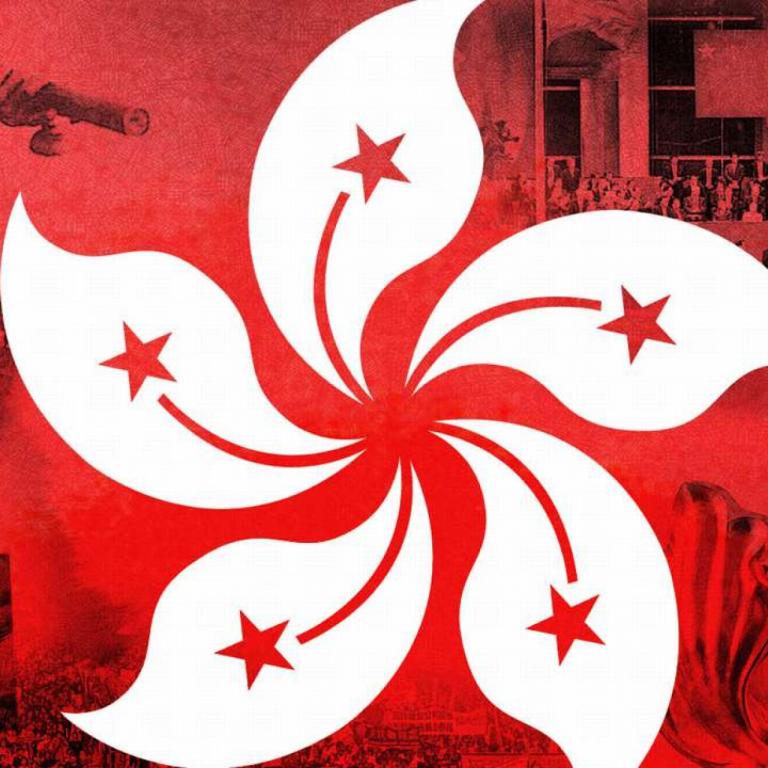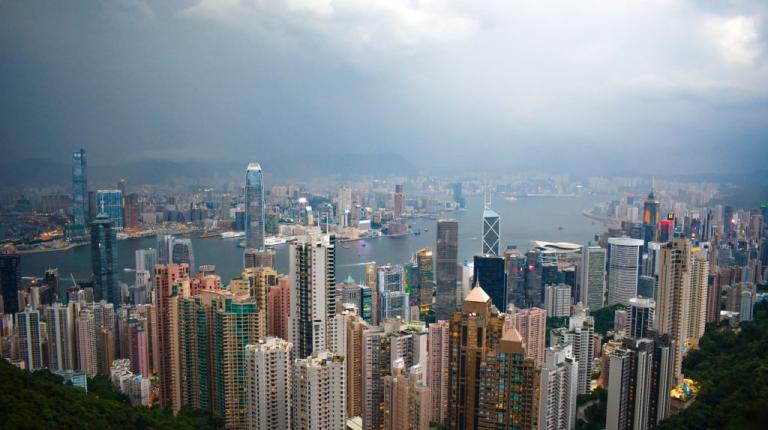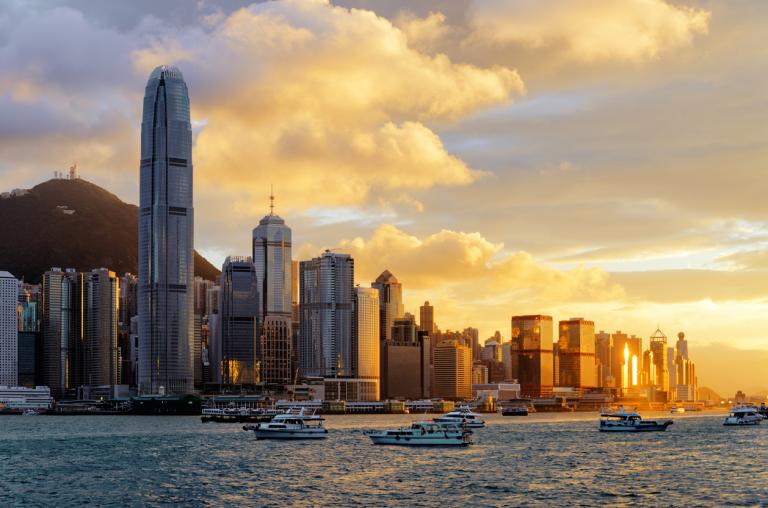The Cession and Return of Hong Kong
6 min readHong Kong was ceded to the Great Britain in 1842 and returned to China in 1997.Chinahas undergone its downfall and revival during Hong Kong’s colonization of 145 years.
Hong Kong Convention and Exhibition center where the ceremony of the handing overof powertook place,July 1,1997.

Hong Kong is a unique administrative district in southern China.It is located at the shore of South China Sea,east to the estuary of the Pearl River and south of Shenzhen.Hong Kong is consisted of three parts:Hong Kong Island,Kowloon,and New Territory.The area of Hong Kong is 1,095 square kilometers and its population is 6,900,000.The Great Britain initiated the Opium War with China in 1840 and coerced China to sign the Nanjing Treaty in 1842 which agreed to cede Hong Kong Island to the Great Britain permanently.In 1860,the Great Britain forced China to sign the Beijing Treaty and cede the south part of Kowloon peninsula permanently.In 1898,the Great Britain forced the China to sign the Treaty to Expand the Hong Kong Borderline and seized the hold of the northern part of the Kowloon peninsula which was named New Territory.The lease was 99 years until June 30,1997.The Chinese people have fought against the above three unequal treaties constantly.During 1982 to 1984,theChinese government and the British government have held a series of negotiations and signed the Announcement on Hong Kong by China and the UK.The announcement declared that the Chinese government will resume its dominion on Hong Kong in 1997.On July 1,1997,the Great Britain returned Hong Kong to China.The Chinese government carried out policies like “two systems under one nation”and”Hong Kong governed by Hong Kong people.”The Law on Hong Kong as a Special Administrative District was enacted.Beside diplomatic and national defence matters,Hong Kong is administered by the Hong Kong government.The regime,life mode,and laws of Hong Kong remain steady.
Loolking over Hong Kong and Kowloon from Mount Taiping.
Hong Kong is a free harbor and has become one of the most important center of world trade, finance, shipping, tourism, and information both in the Pacific and in the world. The export and machining system of textile, rag trade, electronics, horologe, and plastic have become the mainstream. There are famous universities like Hong Kong University, Hong Kong Chinese University, Hong Kong Science and Techology University. Tourist sites in Hong Kong include commercial districts like Causeway Bay, Sheung Wan, Central, Mong Kok, Tsim Sha Tsui and famous theme parks like the Ocean Park, Big Budha, Sung Dynasty Village, etc. Hong Kong is worthy of the name Oriental Pearl. Its GDP is the second in Asia, ranking after Japan.

It is a competitive and free society in Asia and in the world. Ten years after its return to China, Hong Kong is increasingly closer to the mainland economically and is getting to be even more prosperous. It overcame the Asian finance crisis. The social life has been stable. Its status in the world has got strengthened.
The Opium War pushed China into a colonized state and China started its downfall from then on. With its powerful ships and guns, the Great Britain destroyed the fragile southeastinshore line of defence of the Qing Empire and had defeated the Qing troops all the way to Nanjing. Emperor Daoguang was compelled to sign the Nanjing Treaty. Other world powers followed and threatened China to sign more unequal treaties, cede more land, pay moreindemnity, etc. China fell into a period of colonization. The British occupation of Hong Kong fo over 100 years was the period of dark ages in Chinese history and also the time of resistance and salvation by the Chinese people. As the imperialist invasion aggravated, continuous disastrous events happened: the allied troop of Britain and France’s invasion, the war between China and France, the allied troop of eight powers’ invasion, Jiawu War between China and Japan, the 5-30 Massacre, the 9-18 Incident, the 7-7 Incident, etc. Meanwhile, the Chinese people had been aiming to fight for an independent and united nation under the leadership of elites. Significant movements include Lin Zexu’s Humen Opium Incident, Westernization Movement, Wuxu Political Reform, Xinhai Revolution, the Great Revolution, the War against Japanese Invasion, the Liberation War, and the founding of the People’s Republic of China. The Chinese people eventually achieved the nation’s independence.
The surrender ceremony of the Japanese army was taken place at the Nanjing Army Headquarter Hall and the commander-inchief of the Japanese army, Okamula Yasuji, sign the capitulation at 9 am on september 9,1945.
The triumph in the War against Japanese Invasion, the founding of the People’s Republic of China,and the Open and Reform Policy advocated by Deng Xiaoping are three key events in the 20th century that indicate the renaissance of China.As part of the aiti-fascism war all over the world,China’s resistance of Japanese invasion started before the European wars from July7th of 1937 to September 3rd of 1945.During the eight years of war,more than 35 millions of Chinese soldiers and people were killed and the loss is over 1,000 billion dollars.The triumph of the War against Japan was the first victory in anti-agression battles in modern Chinese history.Taiwan,which had been colonized by Japan for half a century,was reoccupied eventually.
China reappeared on the world stage as a triumphant nation that contributed significantly and gained a prestigious status as the permanent menber of the UN Security Council.The Chinese government wanted to take this opportunity to reoccupy Hong Kong but failed due to limited national power.Hong Kong was taken over by the Great Britain after three years’occupancy by Japan.
In 1946,civil war broke out known as the Liberation War in China.Led by the Communist Party,the People’s Liberation Army conquered the Kuomintang army.The Kuomintang government collapsed and Kiang Kai-shek’s group fell back to Taiwan.On October 1,1949,Mao Zedong announced the founding of the People’s Republic of China on Tian’anmen Gate.China thus completely broke away from the nightmare of imperialism and achieved independence and liberation.After a century of invasion and wars,the new China is realizing revival of the nationaleconomy.
The Cultural Revolution began in 1966 generated a decade of turmoil.The Chinese economy,politics,and culture underwent tremendous perturbation,destruction,and damage.

From the year 1978,Deng Xiaoping led this ancient and young nation onto a new era of open and reform and achieved great success.He was also named”the chief designer of the open and reform policy.”Deng proposed the idea of”one nation,two system”to solve the problems ofHong Kong,Macao,and Taiwan.This is an innovative way to peaceful realize the unification of China.Deng led the negotiation of the British return of Hong Kong.The two parties agreed on the returning of Hong Kong Island,Kaoloon,and New Territory on July 1,1997.After the returning of Hong Kong,Macao,which was colonized by Portugal for over 400 years,was also returned to China on December 20,1999,and became a special administrative region.
On July 1,2007,Hong Kong celebrated its tenth anniversary of its return.More than 5,o00 people joined the performance and the audience exceeds tens of thousands of people.
During this period,the productivity of China has developed rapidly.The people’s living standard has improved to a great extent.China has undergone deep changes.At present,theGDP of China had advanced to number four,the foreign trade quantity has advanced tonumber three,and the foreign exchange quantity has become number one in the world.China had achieved spaceflight, constructed grand projects such as the Qinghai-Tibet Railroad, the transportation of gas in the West to the East, Three Gorges Dam, etc. The successful application of the Olympic Games in 2008 inspired great enthusiasm of the Chinese people and enhanced China’s influence in the world.
On July 1,2007, Hong Kong celebrated its tenth anniversary of its return. The policy of “one nation, two systems”proved to be successful.








